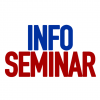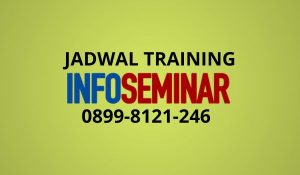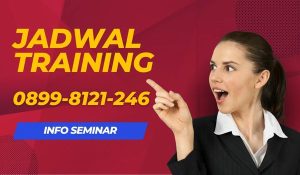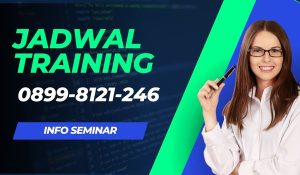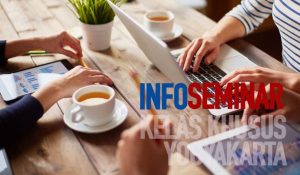FLUID FLOW – GAS METERING AND CUSTODY TRANSFER
Tanggal dan Tempat
- 19 – 23 September 2011 | Hotel Golden Flower, Bandung
- 21 – 25 November 2011 | Hotel Golden Flower, Bandung
TRAINING OBJECTIVE :
This course is developed for engineers and technicians who need to have a practical knowledge of selection, installation and commissioning of fiscal metering equipment. It is for those primarily involved in achieving effective results in industrial processes. This would involve the design, specification and implementation of control and measurement equipment. The course focuses on practical applications, with special attention to installation considerations and application limitations when selecting or installing different measurement or control instruments for fiscal metering.
TRAINING MATERIAL OUTLINE :
1. Basic Fluid Flow:
a. Fluid property
Density
Viscosity
Surface tension
Modulus elasticity
b. Compressible & Incompressible flow
c. Fluid Flow
Continuity Equation
Bernoulli Equation
d. Pipe fluid flow
e. Fluid Flow Measurement
2. Performance Characteristic of Flowmeter
a. Accuracy
b. Repeatability
c. Performance Measure
d. Calculation
3. Head Flow Meter
a. Orifice
b. Sizing
c. Secondary Instrument
d. Calculation
e. Standard AGA3
4. Turbine Meter
a. Systems
b. Properties
c. Characteristics
d. Standard AGA7
5. Ultrasonic Flowmeter
a. Ultrasonic Flowmeter
b. Types
c. Application
d. Standard AGA9
6. Oil Transfer Meter:
a. Meter Run
b. Proving Skid
c. Meter Proving
d. Meter Factor
e. Base Prover
f. Proving Run
g. Prover Pass
h. Prover Round Trip
i. Proving Counter
7. Shipping Calculate Volume & Calculate Correction:
a. Temperature material
b. Pressure material
c. Oil Temperature
d. Oil Pressure
e. Sediments and water
f. Calculate Meter Factor
8. Retroactive Meter Factor
a. Manual retroactive factor
9. Calculation Sample:
a. Flow calculation
b. Oil Quantity measurement
10. Use Measurement Systems in MIGAS Activities
WHO SHOULD ATTEND THIS TRAINING?
a. Instrumentation Engineers & technicians
b. Design & Process Engineers
c. Operation Engineer
d. Well testing group
e. Production Operation
f. Reservoir Engineering & technicians
g. Maintenance Superintendent & Supervisor
TRAINING DURATION : 5 days
INVESTATION PRICE/PERSON :
- Rp 8.250.000/person (full fare) or
- Rp 8.000.000/person (early bird, payment 1 week before training) or
- Rp 7.750.000/person (if there are 3 persons or more from the same company)
FACILITIES FOR PARTICIPANTS:
1. Training Module
2. Flashdisk Contains Training Material
3. Certificate
4. Stationeries: NoteBook and Ballpoint
5. T-Shirt
6. Backpack
7. Training Photo
8. Training Room with Full AC Facilities and multimedia
9. Once lunch and twice coffeebreak every day of training
10. Qualified instructor
11. Transportation for participants from hotel of participants to/from venue of training(if minimal number of participants from one company is 4 persons)
TRAINING INSTRUCTOR
Dr. Ir. Endra Joelianto is an expert in control engineering. His outstanding research is: Hybrid Control Systems, Discrete Event Control Systems, Petri Nets Analysis and Application on PLC, Robust PID Controller, Advanced Process Control, Industrial Automation using PLC/DCS. He received first degree (Ir.) in Engineering Physics in 1990 from Department of Engineering Physics, ITB and Doctor of Philosophy (PhD.) in Control Engineering in 2001 from Department of Engineering,The Australian National University, Australia.
He is coordinator of Intelligent Control and Automation, and founder of PLC Research Group, Laboratorium Instrumentasi dan Kontrol (LINK), Departemen Teknik Fisika, Institut Teknologi Bandung. He was the founder and the director of Schneider-OMRON PLC Training Center, Maranatha Christian University, Bandung. The Schneider-OMRON PLC Training Center has cooperation with PT. Schneider Electric Indonesia, PT. OMRON Corporation Japan, Invensys WONDERWARE. He was the project leader for TPSDP Retooling Program Batch II-DIKNAS for Training Program on “INDUSTRIAL AUTOMATION USING PLC” 2004 and Co-provider for the same retooling program Batch II on “INDUSTRIAL CONTROL AND AUTOMATION” by PT. Cahaya Sumirat, Bandung. In 2005, he leads the retooling project entitled PLC for Industrial Control and Automation at the Department of Engineering Physics, ITB
He attended several professional trainings on PLC, DCS and Instruments Calibration, such as: Yokogawa DCS, Bandung (2000), Implementation of Indonesian National Standard (SNI) 19-17025 and Basic Calibration, Yokogawa Electric Corporation, Bandung (2001), Fieldbus Foundation Technology, Singapore (2002), Basic and Advance PLC OMRON, Jakarta (2004), Cleaner Production: Application in Industries, University of Kwazulu-Natal, South Africa-ITB, Bandung (2005). Advanced Process Control, ASPEN Tech., Jakarta, (2005)
He serves as instructor either for public, universities or in-house training on instrumentation and process control to universities, petrochemical or oil and gas companies, such as: PT. NGL Arun, PT. NGL Bontang, PT. Pupuk Iskandar Muda, PT. Pupuk Kalimantan Timur, PT. Pupuk Kujang, PT. Semen Padang, PT. Semen Gresik, PT. Petrokimia Gresik, PT. Semen Cibinong, PT. Indocement, PT. Semen Tigaroda Perkasa, PT. Exspan Nusantara, PT. ALSTOM Indonesia, PERTAMINA, British Petroleoum, Maxus, Amoseas, PT. Nusa Halmahera Mineral, PT. Indonesia Jaya Power, Indonesia Power-Paiton, PT. Riau Pulp and Paper, Indonesian Cement and Concrete Institut (ISBI), LIPI-Bandung, LAPI-ITB, POLMAN-Bandung, etc.



